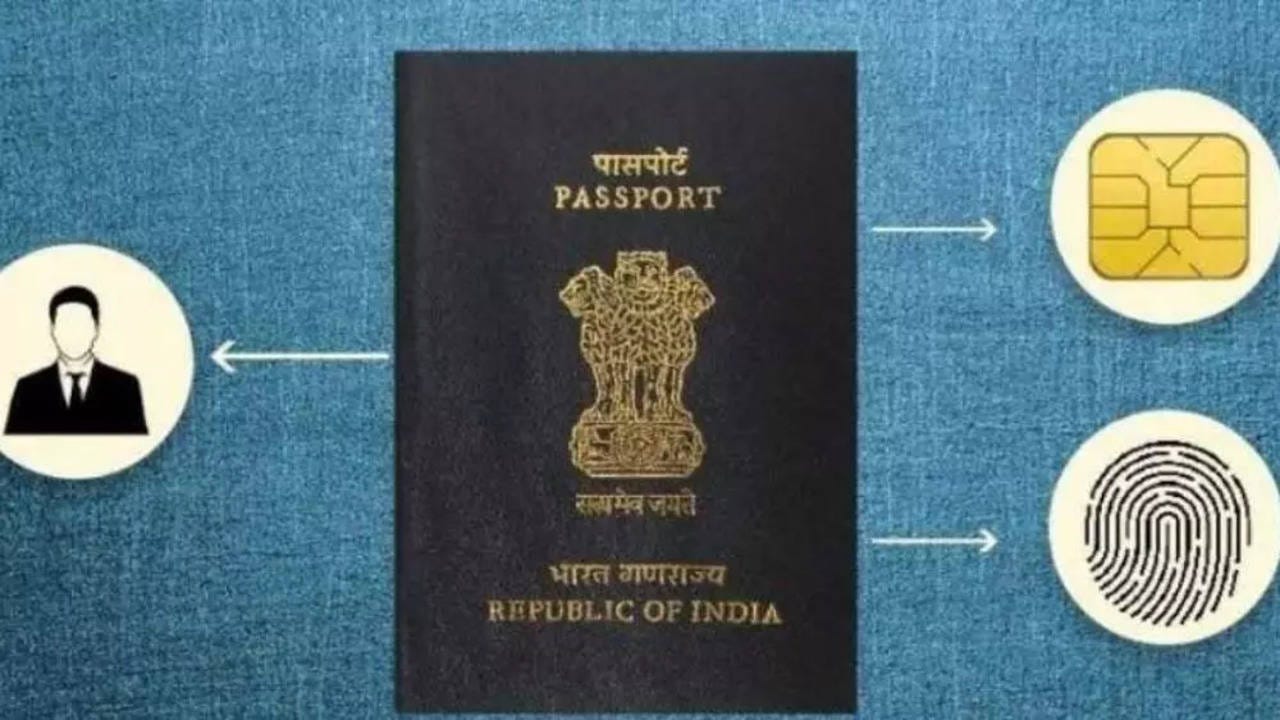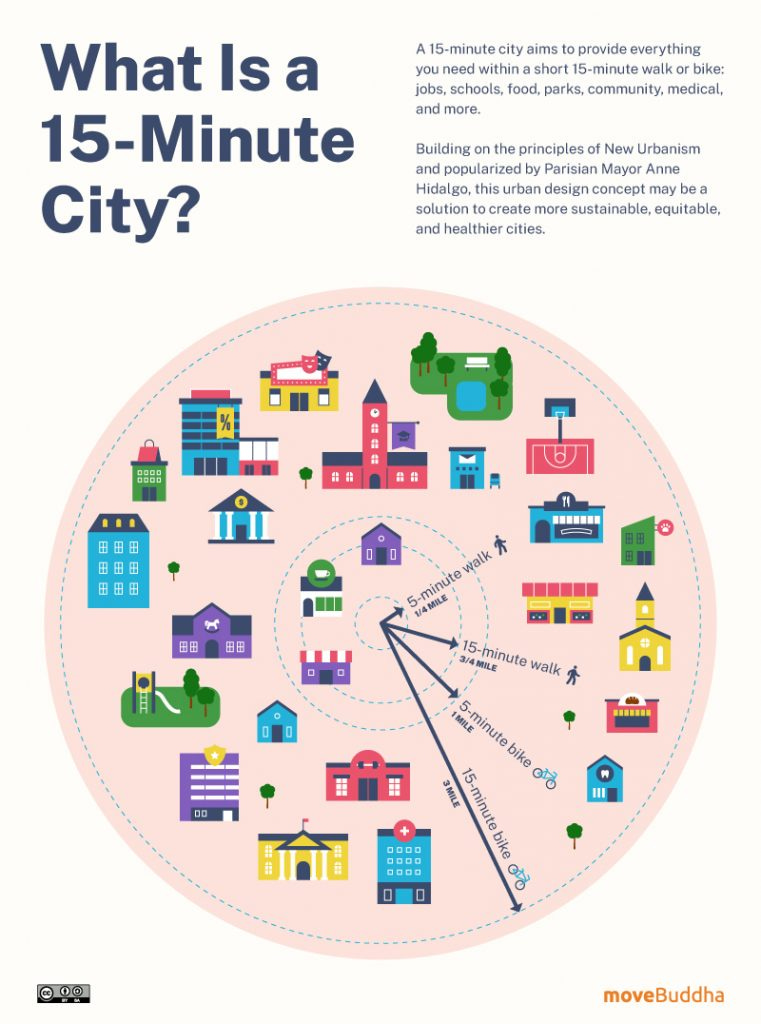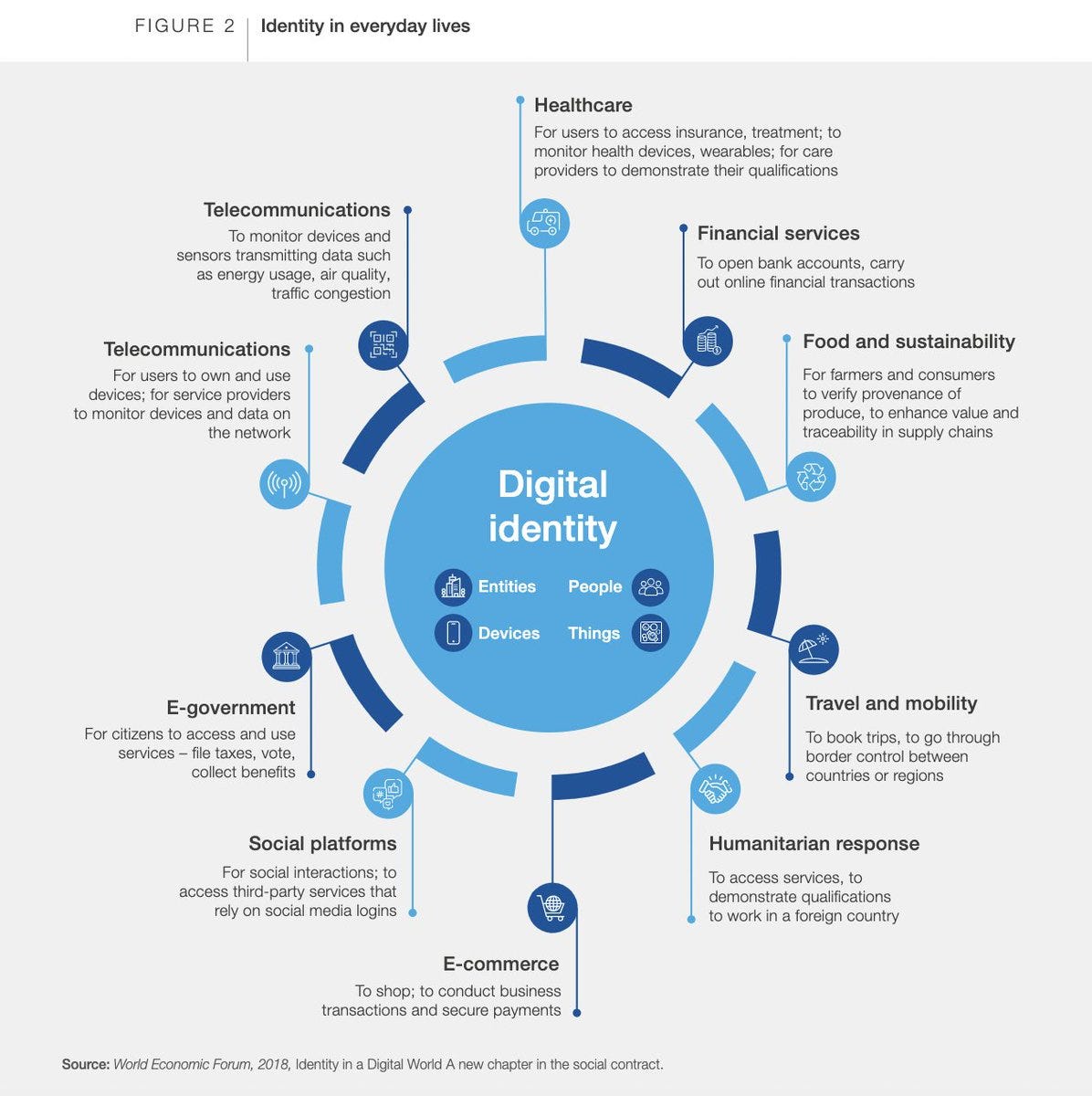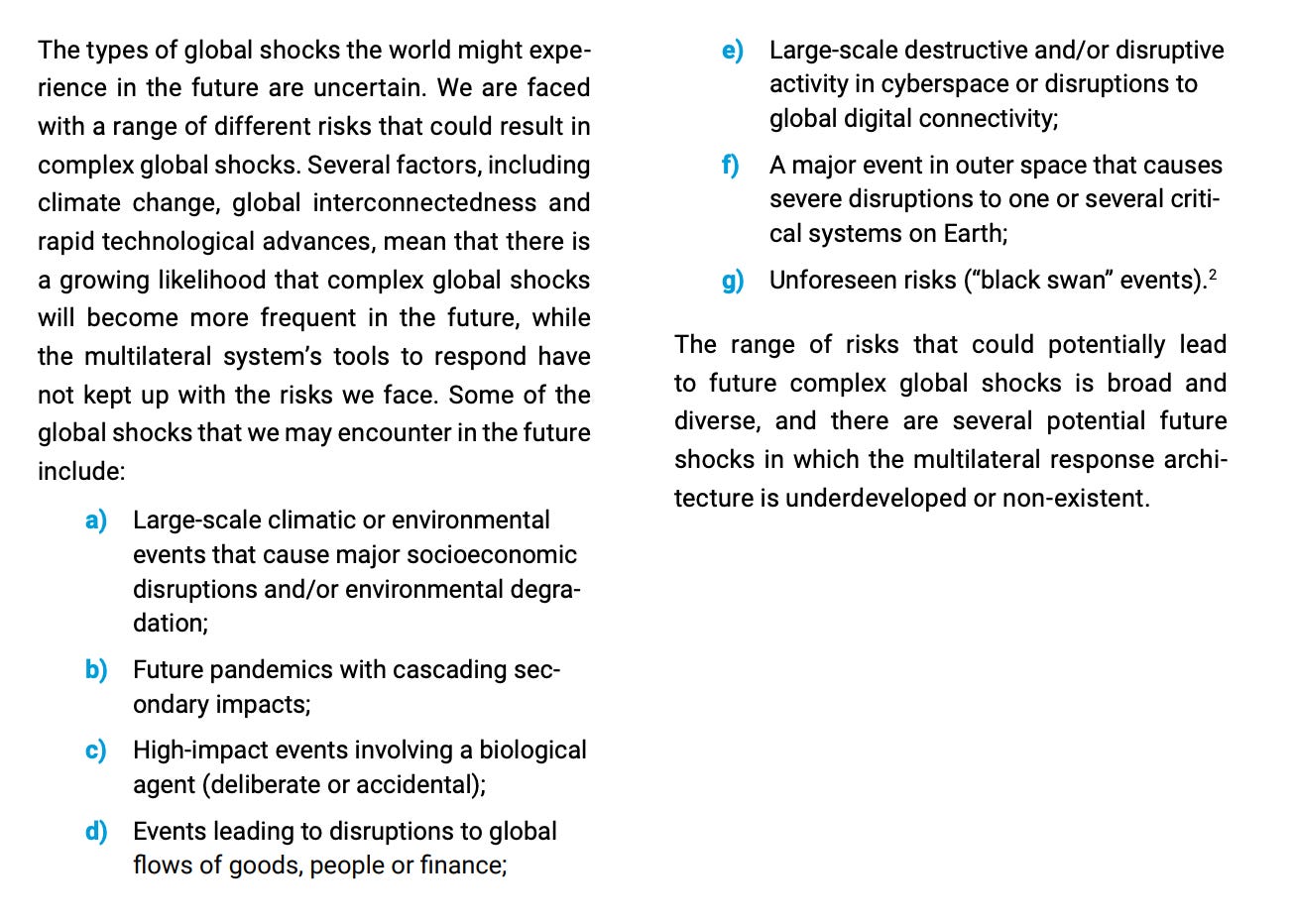Digital Migrants & Coercive Immobility
Exactly how far is the State's reach in terms of remote control over citizens, and what to expect for the rest of this decade.
Welcome Avatar! Now that most countries aren’t hiding their CBDC trials anymore and the calls for global government and taxation can be heard left and right, it’s time to address digital migrants’ freedom to transact, earn and move in the near future.
This is not meant to be too much of a doomer post, but more a cold shower of reality and how to best deal with potential coercive State policies in terms of mobility and earning potential. I will try to offer some potential solutions at the end.
Coercive Immobility: the Rise and Perfection of Movement Control
The Coercive Mobility Theory addresses the ways in which coercive mobility (involuntary removal from the community through incarceration) affects community stability.
We’re going to flip that around and start talking about Coercive Immobility that is coming, and how that affects the individual. It is loosely linked with incarceration, the main difference being that the State doesn’t coerce you into moving to a different location (jail), but forces you to stay put, taking away your mobility one step at a time.
The First World War combined with the Spanish Flu Pandemic of 1918, presented a renewed concern for international security. Until then, countries like Great Britain already had something similar: a page folded in three parts and bound, where the bearer's photo and signature were found, as well as a personal description with details such as the shape of the face, features and complexion.
In 1920, the League of Nations - at the Paris Conference on Passports and Customs Formalities - established a worldwide standard for passports, paving the way for the passports we are forced to use today.
Before this moment in time, passports were not required for international travel. Let that sink in. It’s only been little over 100 years since these cattle tags have become a requirement for mobility from one country to the next.
As I’ve mentioned before in The Case for Slightly Dysfunctional States:
The concept of "nationality" and belonging to a country is actively promoted by the State since it makes citizens less independent, less critical, more collectivist, easier to manipulate, better tributaries, and more willing to fight wars under that particular flag.
The passports inherent to your nationality, enable the State to control your mobility. States can allow or deny entry or exit based on your passport details.
Ever since passports were introduced around the 1920s, the State has been more and more effective in exercising control over its citizens’ movements and mobility, together with a stronger control over citizens from foreign States entering the country.
As we will see in the remainder of this article, both of these are only increasing.
Digital Checkpoint Charlie
Without being too much of a Debbie Doomer here, things like passports get introduced during a genesis event. The 1918 Pandemic and First World War were two “emergencies” that merited the introduction of these booklets, a combined body of States decided at that Paris conference.
This is not much different from the narrative around the TSA airport controls after 9/11 happened, with “safety” measures quickly rolled out across airports and society.
President Bush signed the Aviation and Transportation Security Act in November 2001, just two months after 9/11, which established the TSA to oversee security screening for passengers and baggage. By 2002, more than 60,000 employees were recruited to the TSA nationwide.
Many countries copied these measures and security checks, and air travel has never been the same. In the U.S., I still have to take off my shoes if I want to get out of the country.
Initial acceptance for these things is usually high because, “muh emergency”. This why whenever you hear the word “emergency” or “crisis”, alarm bells should go off in your head automatically.
Today, facial-recognition technology is increasingly used by airlines and U.S. authorities across various stages of air travel, such as check-in, baggage drop, security, and boarding.
Airports currently do not use facial data for widespread surveillance purposes, and U.S. citizens have the right (for now) to choose not to participate in this technology:
While some airlines now give people with foreign passports the ability to join opt-out lines, there may come a day when that goes away. U.S. law mandates additional biometric checks on visa holders exiting the airport — and holding on to that data for 75 years.
In this Mara’s case as a non-U.S. citizen, there is no way to opt out, so the U.S. State will have my rodent facial data for as long as I live. Somehow that does not feel that comfortable after seeing Minority Report.
Passports on Steroids: Digital ID
Now, if we take the implementation of passports requirements for travel and the “need” for the post-9/11 TSA security checks to where we are now, we arrive at the next iteration of Coercive Immobility: Digital ID and Vaccine passports.

Remember that Vaccine Passports were hailed as the solution to return to normalcy after the COVID “emergency” disrupted everyone’s lives (emphasis added):
“[…] vaccination passports are a minimal cost for returning to normal daily life and for reducing anxiety for those you come into contact with on aeroplanes or in theatres, restaurants or public stadiums. They are a small sacrifice for a greater good.”
The same narrative is used for Digital ID verification, which in countries and regions is very far underway (India for example).
The European Union is also spearheading this development under The European Digital Identity Framework (emphasis added):
“The European Council calls for the development of an EU-wide framework for secure public electronic identification (e-ID), including interoperable digital signatures, to provide people with control over their online identity and data as well as to enable access to public, private and cross-border digital services.” — European Council Conclusions, 2 October 2020
If access is enabled, you only have to use your imagination just a little bit to come up with scenarios where that access can be disabled, especially once the only way to access certain services is through logging in with your Digital ID.
As a Dutch citizen I am personally familiar with Digital Identity verification. The Dutch government started its DigiD program all the way back in 2006.
Fast forward to little over a decade later, and there is hardly any Dutch government service that is still accessible without first having to log in through your digital identity token. If you lose access, you’re in for a world of bureaucratic pain.
Remember all those Vaccine Passport programs around the world? The WHO just decided last month that they will seek to implement a Global Certificate System, inspired by EU’s Covid Pass (emphasis added):
"The Covid-19 pandemic highlighted the value of digital health solutions in facilitating access to health services," Tedros said at the signing ceremony.
He said the EU's Covid certificate would now be transformed into "a global public good", as a first step in the creation of a global digital health certification network.
The network will expand to include things like digitised international routine vaccination cards, he said.
It will be aimed to help protect people from health threats, including possible future pandemics, and facilitate global mobility, the WHO and the EU said in a statement.
See, the EU is so good at these Panopticon Games that they get to develop the standard for the rest of the globe to “facilitate” global mobility. It’s all to help protect people from threats and emergencies, don’t worry (insert clown emoji).
In practice, it is a clear case of Coercive Immobility: the only thing these additional checks enable, is to make it easier to prohibit you from travelling.
What should bother you about the fact that the EU is the chosen one to develop this supranational WHO initiative, is that the EU is also the group of mostly unelected bureaucrats that wants all other countries to convert to Climate Communism.
The “Net Zero” narrative is quickly becoming the excuse to exert more State control over citizens and residents, and this will be amplified and easier to enforce with the introduction of CBDCs.
Limits to Earning, Money Flows
In Individual Sovereignty in the Age of Cashless Societies we saw how the IMF is currently working on an international CBDC platform, that will allow for greater interoperability between different national CBDC initiatives.
In recent years, calls for Global minimum tax rates have been on the rise, together with a plea for a Global wealth tax under the lead of Thomas Piketty and Lucas Chancel.
In October last year, a new draft for a Global Tax proposal was introduced at the United Nations (emphasis added):
A new draft resolution introduced at the United Nations this month could mark a key shift in momentum on international tax cooperation, after years of stalled efforts and disagreements between some of the world’s richest countries.
The proposal, submitted by Nigeria on behalf of the African group of member states, calls for the U.N. to consider a wide-ranging proposal to create a new international tax system that would combat criminals moving cash and help stamp out corporate tax cheats around the world.
France’s president Macron even went as far as to call for “an international taxation deal to finance climate efforts”, lol.
Combine these efforts with the IMF working on a CBDC platform, and you quickly start to see that the end goal is total control over transactions, spending, and making money as programmable as possible so it will be easy to play around with interest rates, automatic withholdings, and expiration dates on your money.

Some of the current initiatives may fail, or change, but it is important to keep in mind that this is the direction we’re heading into in the Digital Age, no matter how it makes you feel.
This WEF member explains why CBDCs are a Central Planner’s wet dream (notice the smirk on his face while he mentions the “benefits” of not giving people access to their money:
It is a matter of when, not if this great innovative tool will be used for Coercive Immobility. Want to spend your CBDC token in another country? Perhaps you weren’t a good boy and your country’s Central Bank will not approve that payment.
Or better still: we need to make sure your purchases do not exceed your allowed carbon spending per month.
15-Minute Prisons
A CBDC that allows control over your spending patterns and movements, is the ultimate Coercive Immobility enabler: it allows for radius spending in a programmatic way.
Remember when certain countries during the pandemic only allowed you to either buy groceries with a Vaccine Passport and/or in a certain radius in the same neighborhood?
Enter the 15-minute City concept pushed forward by the C40 initiative, which is quickly gaining in traction.
It sounds great. Live in close proximity to everything you need. Walk to any store or use a bike. Basically, you will never need to leave your neighborhood.
We’ll let European Parlament member Christine Anderson explain the concept a bit further:
“A 15-minute city means basically a neighborhood where you can reach everything you need within a 15-minute foot walk. A doctor, grocery store, and so forth.
However, if you now fancy another store and it does not happen to be in your neighborhood, you won't be going to that store anymore. Total control is what we're talking about. Once they decide you're no longer allowed to leave your 15-minute immediate area, they don't have to fence it in or anything. It will be done via digital ID.
With a social credit system, kind of something like that. Compliance.”
This is not saying the original idea for the 15-minute city concept was maligne. Again, the idea is valid and sounds good, and can work out great in most cities.
But as you can see, Coercive Immobility in 15-minute cities can become very easy for totalitarian democracies once programmatic CBDCs are introduced in combination with Digital Identification.
You can spend in this neighborhood, but your wallet will not work in another. As I hinted at in Individual Sovereignty in the Age of Cashless Societies, once these become the norm, there is no turning back.
It will all be done “to protect you from health threats”, or to “fight climate change” as the noble excuse to take away control over your money, food, and mobility.
This Digital Identity State is about rolling up the West into a Social Scoring Technocracy in order to stay competitive with the high tech authoritarianism being rolled out in China, which is the big example to follow.
The United Panopticon
A recent proposal by the United Nations could kickstart adoption, or at least plant the seeds for a faster rollout.
In this U.N. plan, the supranational organization calls for a new “emergency platform,” a proposal to give the U.N. significant powers in the event of future “global shocks”.
I hope your alarm bells went off when seeing that word “emergency” creep up again.
According to the proposal, “the world must be ready to respond to a range of different global shocks in the future”, and the U.N. has appointed itself to become the conglomerate to organize that response.
This is a short overview of what these shocks and emergencies could look like, according to the U.N.":
As you can see, the definitions here are so broad, that they could be applied to anything. As this article in The Federalist points out:
“In other words, the United Nations would be given unprecedented authority over the public and private sectors of huge swaths of the world, all in the name of battling a yet unknown crisis.”
Now, it will probably take some time from a legal point of view for an organization like the U.N. to be able to push a crisis response forward in different jurisdictions.
However, the 2020-2022 COVID response set a precedent: it was one of the major events where we saw global coordination on an unprecedented scale. Very few countries decided to opt out, and the majority blindly followed the crisis response bullet points handed out by the WHO.
That is not such a comforting thought.
How to opt out?
The 15-Minute Prison combined with a CDBC and Digital ID will be introduced in a Dystopia Ville near you soon.
Opting out will likely become harder and harder, for the reasons laid out above. By now you’re probably wondering how the f to unsubscribe from this totalitarian society.
In “CBDCs and Future Black Markets” I’ve tried to come up with possible ways of circumventing or avoiding the use of CBDCs.
However, the Coercive Immobility on the part of the State we discussed here, is a whole different ballgame. Kind of hard to travel by plane without a passport these days.
This brings me to: regionality. In the upcoming years, the ideal scenario is to be located in a jurisdiction with low to negligible State enforcement, in a region with abundant resources and decent infrastructure.
There are not too many regions that tick all these boxes.
In Europe, your best bet will probably be Eastern Europe and the Balkans. However, you’re still located in Europe, which is one of the instigators of this digital panopticon.
I would also avoid the Middle East, not for State enforcement reasons, but more because of a combination of over-dependence on imported resources (especially food). In the turbulent years ahead I would not want to be located in a region that has to import most of the essentials needed for survival (see what is happening in Lebanon, for example).
Other regions will be Latam with abundant resources, food, water, and easy border crossings (even without controls in some places) between huge countries.
Perhaps some parts in Asia that are more rural but still have decent infrastructure and good access to resources, but I don’t know enough about that region to pinpoint any specific countries (if you do, let me know in the comments).
The downside of Africa is that infrastructure is sorely lacking in most countries, and others are too dependent on food imports. From an State enforcement perspective, Africa would probably be the best continent (this was also clear during the pandemic response, where most African countries completely ignored the WHO or lockdowns, or simply could not enforce them). In most of Latin America only Mexico was able to pull that off.
See you in the decentralized mobility Jungle, anon!













Very interesting article. I've just started a Substack on the disruption of nation-states by the Internet, and I also talk about how states will react by trying to control their population.
However, I have a slightly different point of view: I think that, in the long term, and despite a few victories here and there, the Internet, nomadism and globalization will strongly disrupt nation-states, and diminish their power.
(I say it's a different point of view because the impression I got from your article is that you're rather pessimistic about the power that nation-states will have over individuals in the long term... but maybe I'm wrong !).
You can see here an article in which I analyze whether it would be feasible, for example, for states other than the USA to set up taxation on nationality, which would be a strong means of control for them: https://disruptives-horizons.com/p/can-other-countries-introduce-taxation
Se que dijiste que no querías sonar muy doomer pero:
La concha de mi hermana.
Yo quedé bastante cagado con lo que pasó en ¿Canadá? con las huelgas de camioneros había sido? Bueno, se ve que no quedé tan cagado porque no recuerdo con exactitud, pero me parece vos habías mencionado sobre cómo estaban los bancos negándole acceso a los fondos a gente que le compraba comida e insumos a huelguistas.